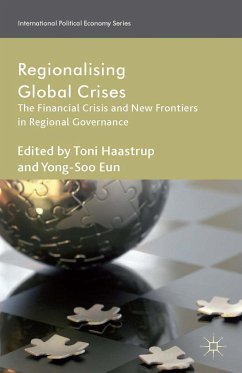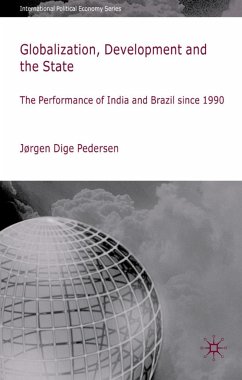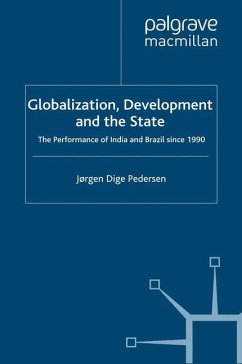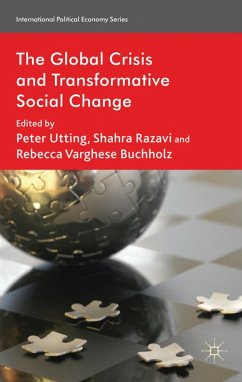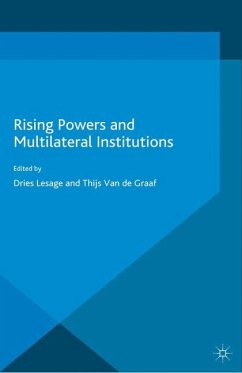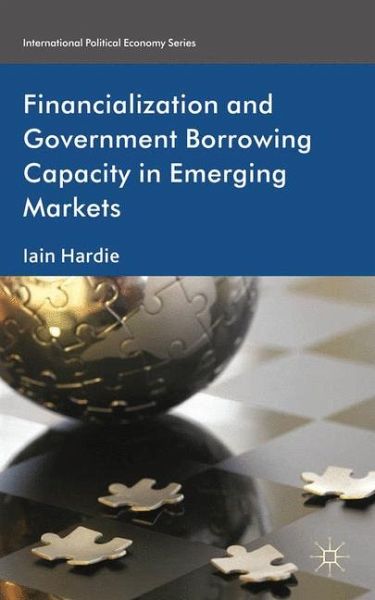
Financialization and Government Borrowing Capacity in Emerging Markets
Versandkostenfrei!
Versandfertig in 6-10 Tagen
76,99 €
inkl. MwSt.
Weitere Ausgaben:

PAYBACK Punkte
38 °P sammeln!
Hardie investigates the link between the financialization - defined as the ability to trade risk - and the capacity of emerging market governments to borrow from private markets. He considers the government bond markets in Brazil, Lebanon and Turkey and includes interviews with 126 financial market actors.






